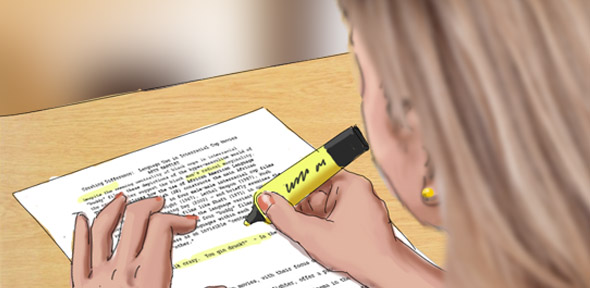
University Statement on Proofreading
Guidelines for Students, Supervisors, Examiners and Proofreaders
Proofreading represents the final stage of producing a piece of academic writing. The University believes that students should be encouraged to proofread their own work, since this is an essential skill in the academic writing process. However, it is recognised that in some instances it is appropriate for some students to seek the help of a third party for proofreading. Such third parties can be professional proofreaders, fellow students, friends or family members.
This statement sets out best practice guidelines for students, supervisors, examiners and third party proofreaders regarding the proofreading of all written work up to and including doctoral theses. Failure to adhere to these guidelines could constitute a breach of academic integrity and contravene the University-wide Statement on Plagiarism. It is therefore the student’s responsibility to provide the proofreader with a copy of this statement and its guidelines.
What a proofreader may and may not do
Within the context of students’ assessed written work, to proofread is to check for, identify and suggest corrections for errors in text. In no cases should a proofreader edit a student’s writing (that is, check or amend ideas, arguments or structure), since to do so is to compromise the authorship of the work
A proofreader may
- Identify typographical, spelling and punctuation errors;
- Identify formatting and layout errors and inconsistencies (e.g. page numbers, font size, line spacing, headers and footers);
- Identify grammatical and syntactical errors and anomalies;
- Highlight overly-long or complex sentences or paragraphs, especially where meaning is ambiguous;
- Identify minor formatting errors in referencing (for consistency and order);
- Identify errors in the labelling of diagrams, charts or figures;
- Identify lexical repetition or omissions.
A proofreader may not
- Add to content in any way;
- Check or correct facts, data calculations, formulae or equations;
- Rewrite content where meaning is ambiguous;
- Alter argument or logic where faulty;
- Re-arrange or re-order paragraphs to enhance structure or argument;
- Implement or significantly alter a referencing system;
- Re-label diagrams, charts or figures;
- Reduce content so as to comply with a specified word limit;
- Make grammatical, syntactical or stylistic corrections;
- Translate any part of the work into English.
Authorial responsibility
Students have overall authorial responsibility for their work and should choose whether they wish to accept the proofreader’s advice. It is therefore preferable that students’ work be proofread electronically by means of tracked changes and comments, though handwritten annotations on hard copy are also permissible.
Students should note that the use of a proofreader will not be accepted in mitigation of any deficiencies in their work.
You can check the University's Guidance on Proofreading here.


 The Language Centre
The Language Centre
